The Female Don Quixote and Heroism for our Times
I’ve been blogging for over ten years. While the blog has lain dormant at times, there are still hundreds of posts to sift through. When Travis Perry asked if I could share one of my old posts as a guest blogger for him, the task seemed a little daunting at first. However, my attention was soon caught by two old analyses of The Female Quixote I discovered in the “similar posts” prompt below the one I had landed on. I had written the same post twice with over a year gap between them. I copied and pasted them into Word for comparison. There were big differences in how the paragraphs were composed, but the sequencing and conclusion were the same in both posts. Why my mind gets stuck on certain subjects is a mystery for a brain scientist to solve; why it can’t remember what I write is also a mystery. The fact is, though, the subject of these posts is one I still care about to this day. It’s a big drive in my current fiction writing: restoring the heroic mythos we lost during the Enlightenment.
The Female Quixote was written by Charlotte Lennox in the mid 18th C, over a hundred years after Miguel de Cervantes wrote Don Quixote. In Cervantes’ novel, you can already see the rupturing of heroism — the protagonist is well-known for being a fool who tilts at windmills as if they were monsters instead of, say, for being a knight who rescues princesses after slaying dragons. Don Quixote is a fool precisely because he has read too many heroic stories. On his deathbed he renounces heroism, even adding a stipulation to his will that his niece will lose her inheritance if she marries a man who reads chivalric romances. Conclusion: Believing in heroism is madness that can’t exist in a modern rational world.
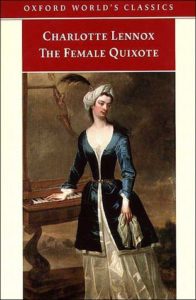
A rational view of Arabella. Image source: Goodreads
In The Female Quixote, the protagonist Arabella is very like Don Quixote, albeit the female counterpart. Arabella views the world through romantic French novels and expects adventures around every corner. Why no villains have yet attempted to kidnap her, nor any heroes fought duels to win her heart is a mystery to her. In short, she believes French chivalric novels are historical texts. This is presumed to be madness, and a rational-minded doctor is called in to talk sense to her.
She asks the doctor this question: “The Fables of Aesop, said Arabella, are among those of which the Absurdity discovers itself, and the Truth is comprised in the Application; but what can be said of those Tales which are told with the solemn Air of historical Truth, and if false convey no Instruction?”
The doctor is forced to admit that the novels which have formed her thoughts can’t be defended. Intent on reforming her mind, he asks her many leading questions, e.g.: “How is any oral, or written Testimony, confuted or confirmed?”
She responds, “By comparing it . . . with the Testimony of others, or with the natural Effects and standing Evidence of the Facts related, and sometimes by comparing it with itself.”
This isn’t the response of a delusional person; it’s, in fact, reasonable and intelligent. Yet the novel moves forward with the idea that, while Arabella is insane, her madness is a result of a poor education. What she needs is a proper education that matches the rationalism of the modern world. Eighteenth-century England is no place for knights to run around rescuing imprisoned girls. It’s a country of science, of the Royal Society, of microscopes and telescopes, of businessmen who marry their daughters off to the landed gentry (and vice versa).
While the setting straight, or healing, of Arabella’s mind might be of some relief to other readers, as well as to Arabella’s honorable suitor, Mr. Glanville, I can’t help feeling let down, as though I, as well as the heroine, have lost something beautiful when she realizes that chivalry, adventure, and the divine art of love are fantasies. Although I’m always disappointed in the end of The Female Quixote, I refuse to conclude that Lennox merely meant to instruct society on the type of novels young women ought to read, favoring the moralistic and rational Richardson over Madeleine de Scudery.
No, the following exchange doesn’t support this interpretation:
The doctor claims that “[Arabella’s] Writers have instituted a World of their own, and that nothing is more different from a human being, than Heroes or Heroines.” Her writers — and yes, he gives Arabella ownership of them — have created their own worlds. They exist as false worlds within false words and create false notions within minds, especially the minds of young girls.
Arabella gives a frank reply to the doctor: “I am afraid, Sir, that the Difference is not in Favour of the present World.”
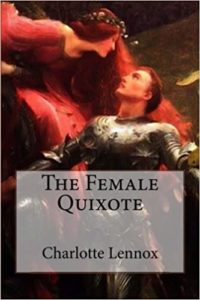
A more romantic Arabella, with the hero of her mind.
This is a far cry from the conclusion of Don Quixote, where irony subverts the ideal of the heroic. Heroism isn’t realistic and, hence, not what humanity needs because…realism is what we need, surely? Yet, while epic heroes might have gone the way of ghosts as the 16th C turned over into the 17th, villains didn’t disappear. Evil men still march their way through history, devising plots to kidnap and imprison others, to steal from them, to overthrow kings and chop the heads off princesses. I have to agree with Arabella; the difference is not in favor of the present world. More than two-hundred years have passed since Lennox first published her novel, and our hyper-rational, post-enlightenment society has not yet eradicated villains, even if the heroes have fled from our collective unconscious.
One of my blog commenters responded: “And this is why I’m in the Society for Creative Anachronism. Heroes are possible there.”
They’re still possible in literature, too, and I have a feeling I’m not alone in wanting to restore heroism in what I write. The Enlightenment has done a lot of damage (it has also done a lot of good, which I wrote about here), but it can’t ultimately destroy the human soul, which needs heroism to thrive. Why does it need heroism to thrive? The short answer is the Sunday school answer: Jesus. Jesus was the ultimate hero, who broke our chains and set us free from the roving dragon of sin and death and evil. When we as humans lay down our lives and act as heroes for others, we are following Jesus’ model. When we tell stories of heroes in our books, we’re feeding the soul that longs for Jesus.
This is the reason I get stuck on the subject, and it doesn’t actually take a brain scientist to figure it out.
































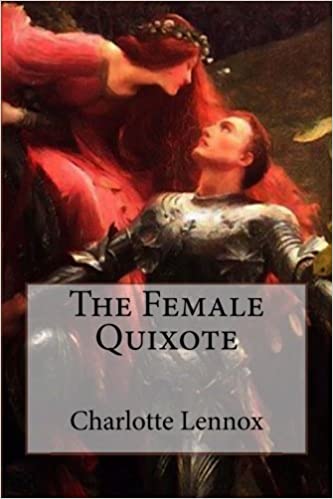
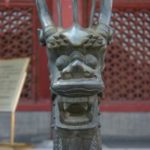
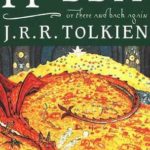




Hooray for heroes! Heroes are the ones who overcome the base nature, the “sin in us” that we all face, and know to exist. Humanists taught us that if we were all educated properly, if we all reached our “full potential” we would put away the silliness of the need for heroes and heroism. We would all simply “get along” as rational people would. Except we’re not and we can’t, and therein lies the need for a hero. It’s not necessarily the giants and trolls and dragons that need defeating that create heroes. Heroes are made when we look inside ourselves and say, “I’m not fit to do this… but I’m the one that’s here, so I’ll do it.” There will always be heroes; there will always be a need for heroes, as there will always be a need for the Lord Jesus and His sacrifice to save us. Or there will be until we all join together with Him in glory. Then let the victory party roll!
Do people want heroism, or do they want the theatrics associated with heroism?
Lol. I honestly think more people want theatrics based on superhero movie popularity. But some people care about actual heroism.
Great question.
I bet more people would rather play a hero on TV than be one in life. Especially one with a mild mannered alter ego who never got applauded for their heroism.
They want the theatrics until they’re actually in a situation where they need heroes. Nobody wants to be in that situation…but I’m pretty sure they’re still grateful for them after the fact. It’s a hard desire in the human soul.
Excellent article! I’ve not heard of this book, but it sounds very interesting – I may have to check it out.
The missing concept of heroism is one reason why I write. It seems important that we relearn the reality of Heroes as a culture!
Hm, kind of interesting to think about how different stories compare and contrast heroism. Fate Zero actually discusses a lot of that through its characters, which are pretty varied in terms of personality, occupation and life experiences. Some chars adhere closely to their own ideals of heroism and chivalry, while some scorn it. Kiritsugu, for example, wants to save the world, but scorns the old ideals of heroism because it was propaganda that would motivate people to go out and fight. His goal is to end all conflict in the world, and gets angry at the idea of someone seeing war and fighting as anything except hell.
A lot of Fate Zero would seem very dark and maybe very critical of hopes, dreams and heroism. But then looking deeper into its themes, maybe it’s less about criticizing dreams and heroes, and more about criticizing people’s outlooks and methods. It also subtly explores what it means to be a hero in the first place.
To me there’s several definitions to the word hero, and I don’t think very much in terms of calling people heroes. A lot of my chars are simply just trying their best to survive and move toward their goals. And many of them are simply trying to do the right thing. Heroics don’t matter to them because all they’re trying to do is protect what they care about.
Kiritsugu sounds like a good dude to destroy the bourgeoisie with 😀
He’s the coolest assassin ever, though it’s more like he wants to end all war and violence, period. So I don’t know how concerned he is with social class. He’s been all over the world and seen insane amounts of corruption in every circle. But he is a good lesson in why it’s a bad idea to try and force the world to be perfect. Not sure if Fate Zero is so dismal that it would depress you, or if it would be something that would help you vent and feel rebellious.
I will tell you that Kiritsugu is complicated and far from perfect. You might not like everything he does.
You know why there are so few heroes now?
We have a real lack of virtue in our stories.
Super powers don’t automatically make someone a hero since villains can also have them. And outside of comic books many heroes don’t have them.
A hero can be short (Frodo Baggins), stupid (Prince Myshkin), speech impaired (Sir Gibbie), or a rabbit (Hazel.)
But he or she must be virtuous–or heroic. Character qualities such as temperance, courage, justice, prudence, faith, hope and love are a must. All you need now is a dragon for the hero to fight.
This is a good point. Superheroes come with powers, not necessarily virtue. Virtues are more important.